- Home
- Tarryn Fisher
The Wrong Family Page 12
The Wrong Family Read online
Page 12
There, at the bottom corner was something... Something, Juno thought—but probably nothing. She turned the envelope, shook it a little, and into her hand floated the strangest thing.
A tiny piece of paper towel...no—cloth. It was old and scrunched up. It looked to Juno like there was embossing on it, like on a hankie her grandfather had kept in his breast pocket. She lifted it closer to her face, rolling it a little between her fingers. The yellow color, she realized, was blood, very faded old blood.
Juno dropped the scrap in disgust. Why would Winnie keep this tiny rag? And whose blood was it? She lowered herself very slowly to her knees to retrieve the square, bending all the way down to the rug to pluck it up. For a moment Juno wasn’t sure if she’d be able to get back up; her back seized at the same time her knees locked like two defunct wheels, Nigel’s syrup not yet coating her pain. She pushed through it, stumbling to her feet. Breathing like a winded rhino, she returned the scrap to the envelope. It could be anything, she supposed, depending on how weird Winnie truly was. Juno had once had a patient who collected his fingernail clippings in a mason jar. There was one more envelope, and this one felt heavier. Bracing herself, Juno wrinkled her nose as she tented it, hoping to see something else, but when she looked inside the second, there were not one, but six bloody pieces of cloth.
She’d never wanted to be rid of anything quite as badly. What exactly had Winnie’s mother been smoking when she was baking the twins? Hands moving quickly, she started to roll the envelopes back into the wad. Her knuckles locked painfully, but for once, she was too preoccupied to notice. Shaking her left hand to loosen some of the stiffness, she lifted her right hand—the one holding the envelopes—up to her face. Juno’s old eyes worked hard, probably so hard she’d have a headache later. But there it was: two envelopes and six bloody scraps. After she put the box back, she walked stiffly to the bathroom where she held her hands under scorching water.
Juno knew from a lifetime of training that she had to get inside the head of the person, burrow deep until she knew not only how they worked, but why they worked. Once she had that vital piece of information, the circuit board to that person’s brain opened up, allowing Juno to press the right buttons. Two envelopes: six bloody little scraps. Were they trophies? No, Winnie considered herself the trophy; she would never keep something dirty and soiled as a souvenir. They were keepsakes, like a lock of hair or a love letter. And judging by the way they were wrapped up, painful ones. And then the thought came, dragging out of Juno, snagging along the way. What if no one knew Sam’s mother had even been pregnant? What if Winnie was the only one who knew? Juno had been looking for a stolen baby, but perhaps the real truth lay in finding the mother. This thought settled over her like a mist, and she felt cold to her very bones.
16
WINNIE
At ten o’ clock the following morning Winnie was sitting at her desk at work, checking emails and making a grocery list. Her kid was eating them out of house and home. She missed the days when he was little and they shared meals at his little Paw Patrol table; with the way their schedules were now, they hardly ate dinner together anymore. She was only required to be in the office three days a week, and she used that time to catch up on paperwork. The other two days she spent in the field, mostly in psychiatric wards to place patients in home care. She preferred this job to the one she’d had at Illuminations. She didn’t have to work with the patients herself, for one thing, not after the initial placement; after that, they belonged to their case workers. It was more of an overseer’s position and that suited her well, she thought. She got much too involved with her patients. That’s why Nigel had wanted her to find something different after Illuminations. Winnie reached for her coffee and found it cold. She was working to get a patient placement in one of the more coveted adult homes, but her mind kept drifting to the name of the little girl, Lisa Sharpe. Why had Nigel searched for missing children on the internet and then written their names down? It felt like the deepest betrayal, the cruelest thing he could do after...and yet hadn’t she done the same thing? Scouring the news for stories of missing children? If she were to be honest with herself, she would admit that it was the parents she was most interested in. She wanted to see their hurt, to experience their pain alongside them like she had some part in it. She got off on the hurting. She got up from her desk, abruptly leaving her office to look for fresh coffee. That’s what she needed; she hadn’t had enough today and her mind was fritzing. She laughed a little as she made her way down the hall and back toward the kitchen. It was the type of laugh a woman made when she was uncomfortable with something, and Winnie was uncomfortable with her thoughts. She’d never say any of it out loud, no way. She was pouring coffee into one of the company mugs when her next thought derailed her so thoroughly she forgot to add her usual cream and sugar. She stared down at her mug of black coffee once she was back in her office and thought, I can’t do this. I can’t pretend nothing is wrong when it is. She needed to talk to Nigel, face-to-face. Tell him that she knew that he’d been looking at...things on the internet. She grabbed her jacket from the back of her chair, relieved at her own decisiveness. But she always had been the confrontational one; she just had to work her way up to it. Nigel, on the other hand, wanted nothing to do with the battle; he wanted to win like everyone else, but he had other ways of doing it. Winnie didn’t want that type of fight in her marriage. What she really wanted was to turn back time, go back to the night she’d made the worst mistake of her life, take it all back like it never happened. If she could take that one moment back...her marriage, her son...everything would be healthy as it should be.
It was raining when she stood under the awning of the building just a few yards from where her car was parked. Winnie stood huddled there, her eyes looking at the bruised color of the sky and not really seeing it. Where would she go if she got in and drove right now? She didn’t know, so instead of walking to her car she flipped the hood up on her jacket and began walking along the sidewalk, dodging a couple of guys who had their eyes on their phones. The rain was more of a mist, and it swept into her face with an affection only Seattle rain offered.
If they fought it would get ugly, because that’s how people with secrets stepped into the ring. If she told Nigel she knew he’d searched for Lisa Sharpe online he would get accusatory, make her feel awful for snooping and then thinking the worst of him. And maybe he’d be right, or maybe he’d be gaslighting her; she was fairly certain she did her fair share of gaslighting herself. But Nigel wasn’t like Winnie; he wasn’t trying to punish himself for his role in her mistake. No, if he was searching for information it was to benefit himself. You couldn’t live with someone for years on end without knowing their patterns; good or bad you learned them.
Winnie licked the water off her lips. She wasn’t aware of where she was walking, or how fast; she was only vaguely aware of the people she passed and how they stared at her. It must be my makeup, she thought. The rain that was kissing her face was probably making her mascara run. A voice in the back of her mind was telling her that she was deciding how people were seeing her instead of facing the truth about how she actually looked; the voice sounded suspiciously like the therapist she’d seen for three years, the man’s voice more distinct in her mind than her dead father’s. He’d ended up losing his license, after which Winnie quit therapy indefinitely to become a full-time control freak mom.
It was when Nigel brought up renting out the apartment downstairs to help with bills that she’d started looking for a job. The thought of some stranger in her house, watching her, terrified Winnie. She just couldn’t do it, even though she’d agreed to put in the separate entrance. She stopped on the corner of a street she wasn’t familiar with and looked around for the first time. Calm down, she told herself, but she was calm. Almost too calm. Why was that? Because he couldn’t leave her, and that was her ultimate fear. She laughed, a raucous burst that made several people who were waiting for the li
ght to change step away from her, the woman in the Burberry coat with the smudged mascara. But it was funny, wasn’t it? She was afraid of the thing that couldn’t happen. The smile wilted from her lips. It wasn’t that he couldn’t leave, it was that he wanted to and couldn’t. Perhaps it was too much to ask after what she’d done, but she just wanted her husband to love her...to want to be with her.
She’d somehow walked home, wound herself through streets she rarely drove down until she’d reached the opposite end of Greenlake Park and was now standing in front of her own house—a mess of wet clothes and running face paint. Her car was still in the parking lot at work. She’d walked four miles and hardly noticed. The last thing Winnie wanted to do was schlep all the way back to the office just as people were coming back from lunch. If people from work saw her show up, drenched, to pick up her car, they’d assume the worst. They were always looking for something scandalous to chew on; it made the days go by faster. And the worst they could imagine would not be as bad as what Winnie had actually done. She’d have to take an Uber to work tomorrow, concoct some story to go with it. She decided that she’d tell Nigel she’d left work to find her car battery dead. That would be enough. She was back to her old ways: sweeping pieces of her crazy under the rug.
She stilled for a moment, standing at the edge of the park; her house was across the street and for a moment she saw it as the park-goers saw it. “One of the neater homes,” she’d once heard an older man say to his older lady friend as they walked past it. “Mmm-hmm,” she’d agreed as she scooped her arm through his. Winnie agreed with the old dude; she saw the red brick and traditional angles as charming, but some of her girlfriends made snide comments, saying it could have been the setting for a Wes Craven movie. It was barely noon, yet the sky already had a six o’ clock shadow. Her house was framed by agitated clouds that seemed especially dark right above her roof like they were specifically congregating there. That was ridiculous. It was like she was having a mental breakdown or something; this whole day was just—and then her eyes moved downwind toward the bedroom windows and the thought slid from her head. What she saw made her stomach clench and her thighs squeeze together. Someone was standing in her bedroom window looking out at the park—looking out at her. Her mouth dropped open at the same time a man walking his dogs crossed in front of her, blocking her vision for two seconds at most. After he passed, the window—her bedroom window—was empty. She darted across the street, yards from the nearest crosswalk, and a Mazda honked at her. Winnie held up an apologetic hand as she ran across the three lanes of traffic, her eyes firmly glued to the window of the bedroom she shared with her husband. She was pulling her keys out of her bag as she ran up the pathway to the house, now searching the other windows for signs of the intruder. She could see Mr. Nevins’s Tahoe parked along the curb. He was home; she could call out to him if she needed help. The rear of his house faced the rear of her house, separated by a narrow alley. Winnie ran past his truck and the yellow bumper sticker she hated with a passion, to the back alley. Mr. Nevins was nowhere to be seen, the windows of his Cape Cod dark. The gate to her own house was undisturbed; she opened it quietly, pulling her phone from her purse as she kept her eyes on the back door. If someone were to run out it would probably be from here. But then Winnie straightened up, remembering one important detail: the house alarm. She blinked at the back door, fingering her keys. She’d peek in, see if the alarm was still on. She ran across the grass in the backyard, the flowers overly bright in the strange light that was filtering through the clouds. As soon as she was within five feet of the door, she could see the red light on the keypad in the kitchen. It was armed. Winnie felt a chill run down her back and pool indecisively in her toes. She wanted to call the police, but Nigel would have a fit. He’d be embarrassed, and more than that, he’d think Winnie was “losing it”. He’d give her that look again, like she was a dangerous thing that could snap at any moment. She chewed on her lower lip, trembling slightly. She couldn’t call the police, and she couldn’t call Nigel. She’d have to go explore this herself.
Winnie opened the door like a woman preparing to be mugged. Had she imagined it? She’d been thinking about those dark clouds moments before and then...looking around, she tapped the alarm code into the keypad, jumping when the fridge started to hum its tune. The alarm beeped once to tell her it was off, and she took a cautious step deeper into the kitchen listening for any sound. The house was old; it had its noises and she heard those as she strained to hear the intruder. When nothing unusual sounded, she crept toward the hallway, seeing it as empty as the kitchen. She walked toward the stairs, convinced she’d made it all up. She’d been in a horrible frame of mind this morning; she wouldn’t be surprised at all if she’d seen something frightening in a shadow. Her heartbeat calmer, Winnie went upstairs.
In her bedroom, she spun in a slow circle, her eyes darting carefully and impatiently over the familiar objects. Nothing was...wrong, but something was off. She couldn’t place her finger on it. It felt like someone had been here, even if they weren’t there now. Skirting the window, she made sure not to turn her back to the doors. This was ridiculous, she felt ridiculous, but fear was a compelling argument. She’d look more ridiculous if she ended up dead. You don’t really think there was someone in the house, she thought. The alarm was on. So what did that leave...?
Shoving the curtains aside, she stood in the same place she’d seen the figure. Something had looked at her from this window; she was certain she’d seen it. “No,” she laughed, turning away. The only thing haunting her was her past decisions. She was more afraid of that than ghosts.
17
JUNO
The grass was wet and spongy under Juno’s tennis shoes; she turned her face toward the light drizzle and breathed all that good Washington air into her lungs. The outside was now a special treat to her; if only life could balance out its problems. She saw Joe down the way a little, working his cardboard sign, a bottle of orange juice at his feet.
“Orange juice, Joe?”
Joe looked around until he found the source of the voice. His face lit up when he saw her. “Some motherfucker gave it to me, Juno. You know I want the fizzy shit.” He laughed so hard he slapped his knee. Juno hardly ever saw him without a bottle of soda; Crush, preferably, but any soda would do. She caught a look at his sign and raised her eyebrows. Joe wasn’t the “Please help me out” type. In very bold, block writing he’d jotted three lines of a Johnny Cash song Kregger used to listen to. Juno read them with amusement. He was niche homeless: his signs drew the attention not of the bleeding hearts, but of the edgy music lovers with a soft spot for good lyrics. Joe did pretty well on most days. Joe, who referred to the entire world as “those motherfuckers,” was an eternal optimist. He even called the mutt that followed him around Mother. Juno didn’t see the dog now; it was just Joe trying to get her attention. Juno smiled and walked on, but he called after her. “Hey! Hey, Juno! Where have you been, girl?”
“I’m no more a girl than you are, Joe!”
“That’s right! You’re a motherfucker!” She heard him laughing before she turned the corner, eager to be away. Joe was an insatiable gossip, and she wanted no part of that today. She took the long way to the library, stopping at the corner mart for a hot cup of soup. The guy who worked there on weekdays had always been nice to her. He did a double take, then bopped his head at her as she headed over to the soup counter. She had been gone for a while. It was nice that he noticed. Choosing the minestrone and ladling it into the to-go container, she headed to the register to wait her turn. The soup was two dollars fifty, and she set the money on the counter and asked for a single stamp, fishing the extra change out of her pocket. She had just enough left to use the printer at the library, which was five cents a page. With the stamp tucked away, she drank her soup straight from the paper bowl as she walked. The guy at the register had slid her a pack of Mentos before she could walk away—no charge. She ate half the pack
as she sat at the computer terminal in the library, slipping them discreetly between her lips. When she had what she needed and the printer hummed out its last warm sheet, she headed out. Samuel would be home in an hour. He’d take care of the alarm, and Juno would slip in through the kitchen while he did his homework. The problem was Mr. Nevins, who occasionally peeked out of his windows into the alley that Juno had to walk down to reach the back gate. If she took her eyes off the windows, she might not see him, but he would see her, and then he’d call the police. She didn’t cross the street from the park and approach the house from the front; instead, she crossed the street early and took the long way around. Her heart was racing like a Derby horse, and she hadn’t even gotten in the gate yet. What if Sam was making a sandwich in the kitchen and saw his old homeless friend walking through his back gate? Mr. Nevins’s truck wasn’t on the curb. Walking down the alley, making every effort to look like a harmless old woman, Juno kept her eyes on the gate. Samuel had left it open; she wouldn’t have to reach over the top to knock the latch free. She slowed when she neared it and looked around furtively, but there was no movement from Mr. Nevins’s windows. Someone else could see her, she supposed, but chances were they’d think she was the cleaning lady or something. People came and went in the city without the same nosiness you found in the suburbs. Juno had known everyone’s comings and goings when she was a suburban mom. She slipped through the gate and immediately recognized her mistake. A male voice called out to her as soon as she was on the house side.

 Jackal
Jackal F*ck Love
F*ck Love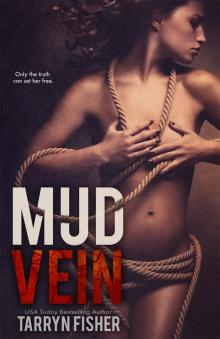 Mud Vein
Mud Vein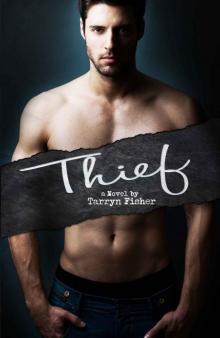 Thief
Thief Marrow
Marrow Dirty Red
Dirty Red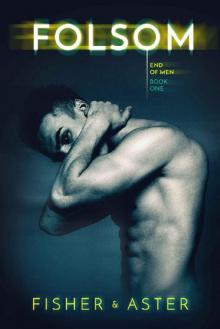 Folsom
Folsom The Opportunist
The Opportunist Atheists Who Kneel and Pray
Atheists Who Kneel and Pray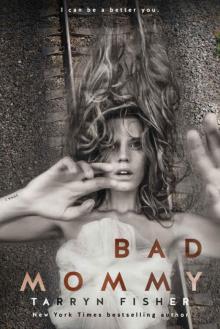 Bad Mommy
Bad Mommy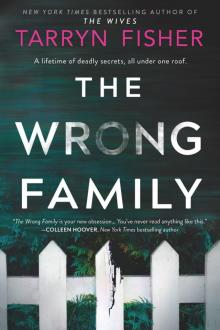 The Wrong Family
The Wrong Family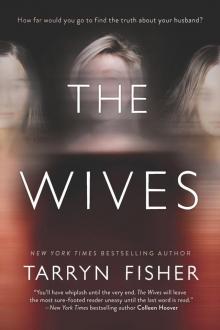 The Wives
The Wives Jackal (The End of Men Book 2)
Jackal (The End of Men Book 2)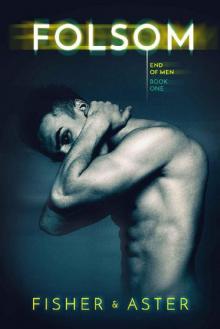 Folsom (The End of Men Book 1)
Folsom (The End of Men Book 1)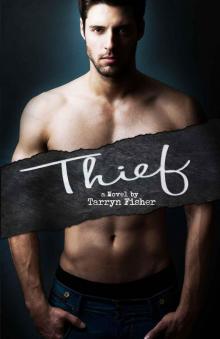 Thief (Love Me With Lies #3)
Thief (Love Me With Lies #3)